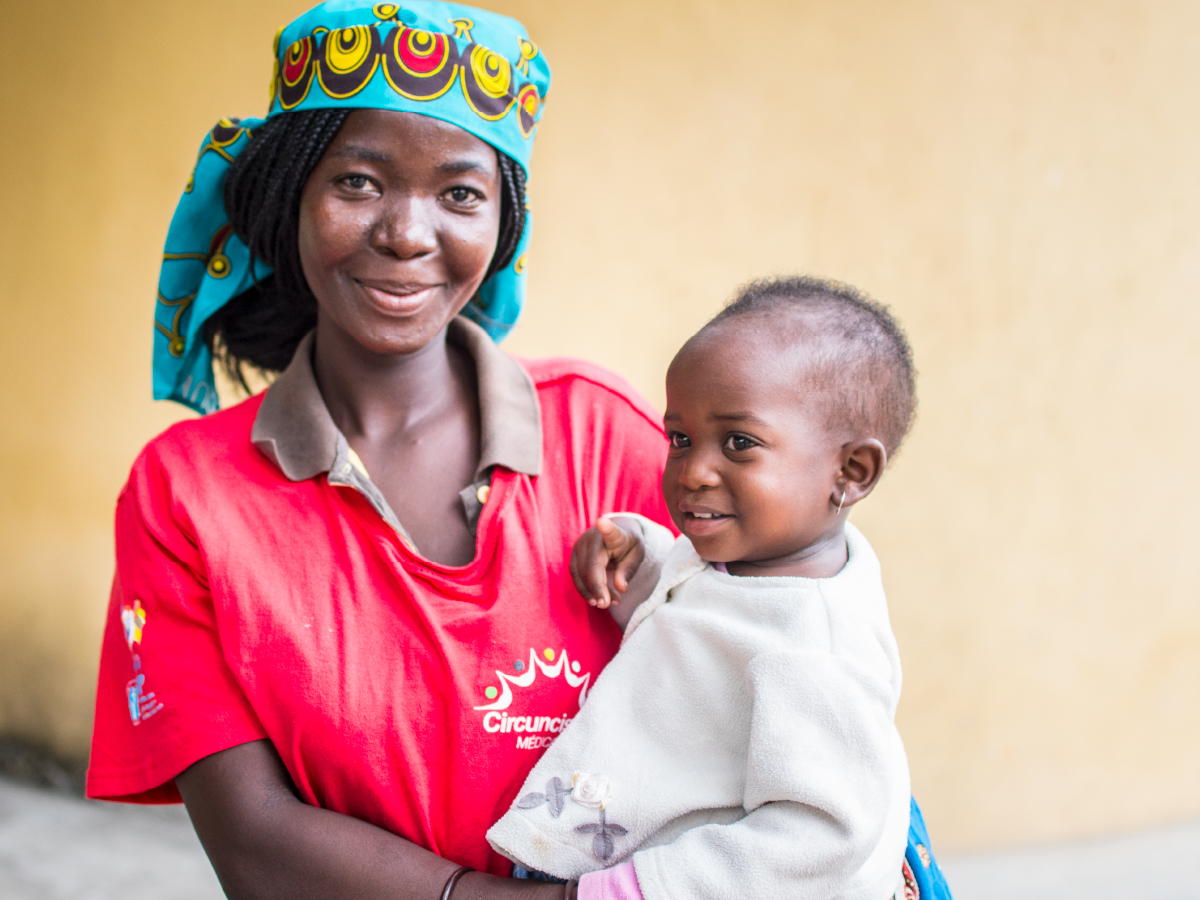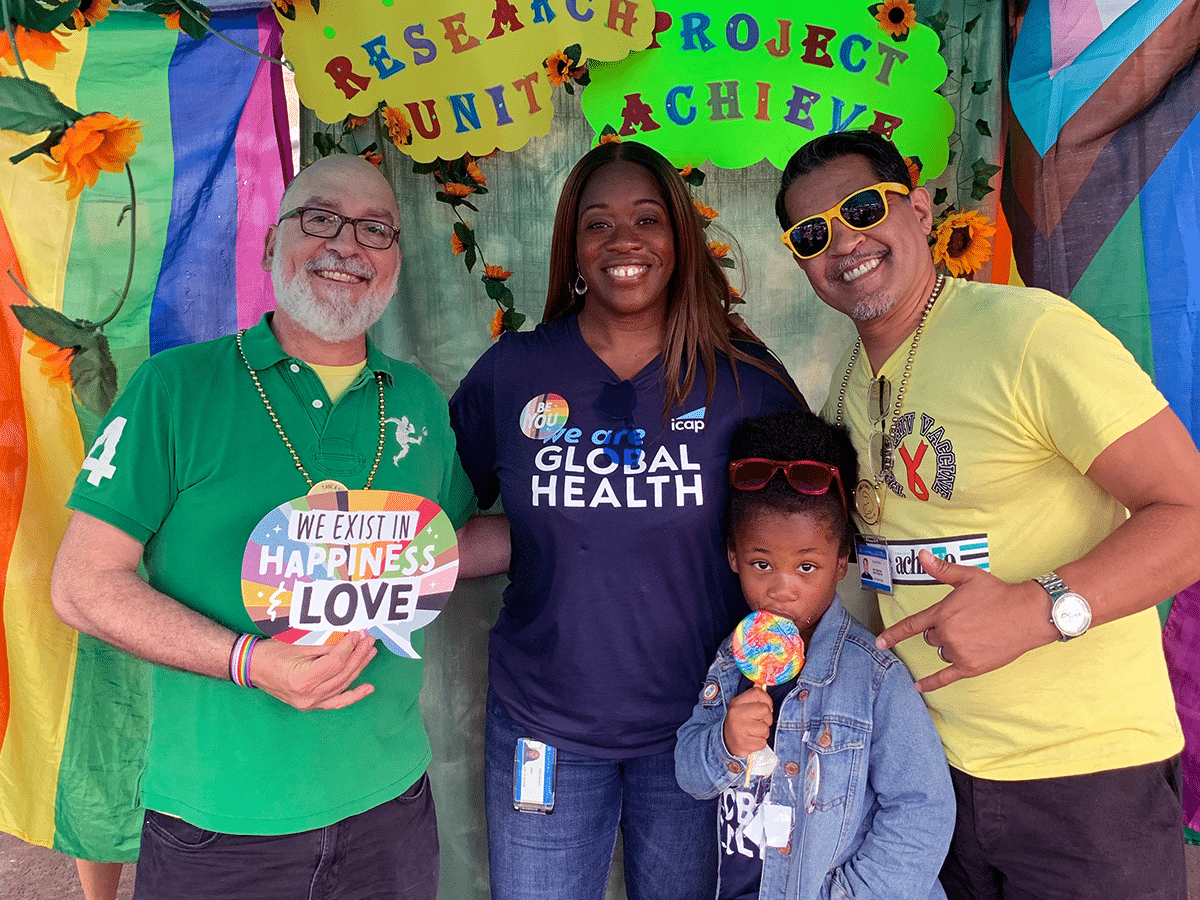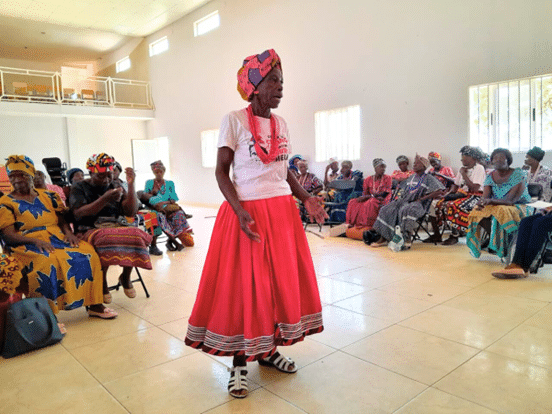With the expansion of large-scale HIV prevention outreach efforts and increased accessibility of antiretroviral therapy (ART), the last decade has seen huge progress in the reduction of new HIV infections among newborn infants around the world. However, significant challenges remain to ensure that mothers of newborns have access to early diagnosis of HIV. ICAP is working with the Ministry of Health in Mozambique (MISAU) to tackle this challenge head on, working together to ensure that even in the midst of the ongoing COVID-19 pandemic, mothers can take action to stay healthy and give their babies the best chance at starting life without HIV.
Infants who have HIV are at high risk for disease progression in the first year of life and, without treatment, one-third of infants with HIV die before they reach one year of age. More than half die by the time they are two years old. In communities hard-hit by the HIV pandemic, early infant diagnosis (EID) of HIV can dramatically increase the likelihood of survival for HIV-exposed newborns.
In collaboration with MISAU, ICAP is actively expanding EID capabilities in high-volume health facilities in Nampula Province. In 20 ICAP-supported health facilities, maternal and child health (MCH) nurses specializing in EID work alongside healthcare workers (HCW) in MCH units, providing on-the-job training and mentorship grounded in the latest HIV science. As HCW grow in their knowledge around the value of early HIV testing in infants, they then serve as champions for EID to their patients and their families. Recent data from ICAP’s programming in Mozambique illustrate the impact of these targeted MCH interventions: Between October and December 2020, at the 20 high volume ICAP-supported facilities with a dedicated ICAP MCH nurse, 98% of babies born to women living with HIV received a first HIV virologic test before 12 months of age, compared with only 72% at other health facilities across the province without a dedicated MCH nurse.
“Integrated early diagnosis for HIV in infants saves lives. The sooner infants are tested for HIV, the sooner they can start treatment if necessary, and start their lives as strong and healthy as possible,” said Alexander Uaeca, national MCH and psychosocial support advisor for ICAP in Mozambique.
Reinforcing the work of HCW, groups of mentor mothers provide one-on-one peer support to pregnant and breastfeeding women accessing services at each of the province’s public facilities. These mentors provide psychosocial support for young mothers throughout their pregnancy and childcare journeys, often serving as a critical link between patients and the health care facility. Mentor mothers provide pregnant women and young mothers with stage-based health information, reminding patients of upcoming appointments, scheduled antiretroviral refills, and recommended vaccination and diagnostic timelines for their children, including EID for HIV.
Another component of ICAP’s work in Mozambique is the ongoing development of site monitoring tools, which, in Nampula Province, allow health care workers to aggregate patient data so that it can be used to shift health outcomes of women and children along the HIV cascade of care. One notable tool developed by ICAP allows clinic staff to longitudinally track mother-baby pairs, from the mother’s first pre-natal visit through early childhood—harnessing the power of communication between patients, health workers, and the health system to support whole-of-patient care. The tool helps staff to generate timelines for significant milestones in each mother’s pregnancy journey, creating a useful guide for patients of important routine checkups, milestones, and diagnostics (including EID). The tool also allows health care providers to see which mother-child pairs have missed health appointments or milestones, such as registering their newborn with the national health system after birth. This information provides clinicians an opportunity to reach out to patients and relink them and their children to important health services.
The COVID-19 pandemic has placed a massive burden on public health systems, including those responding to the HIV epidemic. While significant strides have been made toward the control of COVID-19, the crisis has had significant impacts on public health, including reduced clinic capacities; decreased access to testing, treatment, and viral load suppression monitoring; stockouts of essential protective equipment for health care providers; and even the loss of skilled frontline health workers as they succumb to COVID-19 themselves – all of which has made accessing critical prevention and treatment services even more difficult for communities already at heightened risk of HIV infection.
“When it comes to progress toward ending the HIV epidemic and supporting mothers and children in Mozambique, we are committed to preserving our hard-won gains. COVID-19 has made things dramatically more complicated, but our resilient, resourceful teams have shown that they are more than a match for even the most daunting public health scenarios,” said Mirriah Vitale, country director for ICAP in Mozambique.
ICAP teams across Africa, Asia, and the Americas have risen to the challenge and while maintaining ongoing services across the HIV continuum of care, concurrently led COVID-19 contact tracing, testing, surveillance, and health systems strengthening work. In Mozambique, the ICAP team worked around the clock to maintain the delivery of essential health services in supported facilities across Nampula Province to safeguard the health of patients. While onsite staff remained embedded at health facilities across the province during the pandemic, ICAP’s central- and provincial-level technical experts quickly pivoted to provide virtual support to health facility staff. To monitor MCH performance at health facility level, ICAP created a WhatsApp group to monitor daily indicators within 16 health facilities in need of extra support. As COVID-19 related restrictions were lifted and more clients returned to health facilities, ICAP worked in close collaboration with MCH clinicians to rapidly identify mother-baby pairs that missed their appointments during the early months of the pandemic and conduct immediate outreach to bring them back into care.
As a result of these multi-faceted efforts at ICAP-supported facilities across Nampula, encouraging signs of progress were observed between the end of 2020 and the beginning of 2021, including a 10% increase in the number of pregnant women who knew their HIV status, a 9.5% increase in the absolute number of EID samples collected, and an increase in ART coverage for infants from 89% to 93% for children less than two months of age and from 84% to 90% for children aged 2-12 months.
As the world continues to confront the dual COVID-19 and HIV pandemics, ICAP stands strong with its colleagues in Nampula Province, the country of Mozambique, and with its many partners around the world to protect the important gains made in fighting the HIV epidemic and safeguard the lives of those most-at-risk for HIV infection in the new COVID-19 context.
About ICAP
A major global health organization that has been improving public health in countries around the world for nearly two decades, ICAP works to transform the health of populations through innovation, science, and global collaboration. Based at Columbia Mailman School of Public Health, ICAP has projects in more than 30 countries, working side-by-side with ministries of health and local governmental, non-governmental, academic, and community partners to confront some of the world’s greatest health challenges. Through evidence-informed programs, meaningful research, tailored technical assistance, effective training and education programs, and rigorous surveillance to measure and evaluate the impact of public health interventions, ICAP aims to realize a global vision of healthy people, empowered communities, and thriving societies.








